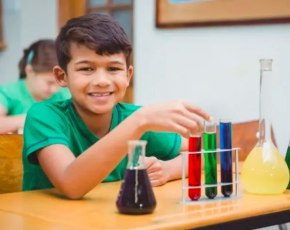Language development is one of the most exciting milestones in a toddler’s growth. As young children begin to explore the world with words, they lay the foundation for future learning, social interaction, and emotional expression. Supporting this natural process doesn’t require advanced tools or formal lessons—just daily engagement, patience, and a language-rich environment.
Why Early Language Matters
During the toddler years—typically from 1 to 3 years old—children experience rapid brain development. This is a critical time for acquiring the basic skills needed for effective communication. Strong language skills in early childhood are linked to better outcomes in reading, writing, and overall academic performance later in life.
Everyday Strategies to Support Toddler Language
Talk Often and Clearly
Narrate everyday activities as you go about them. Whether you’re folding laundry or preparing snacks, describing what you’re doing helps toddlers connect actions with words.Listen and Respond with Interest
When toddlers attempt to talk—even with limited vocabulary—listen attentively and respond enthusiastically. This encourages more attempts and builds confidence in communication.Read Together Daily
Storytime is one of the most powerful tools for language development. Choose picture books with simple stories and repeat favorites to reinforce vocabulary.Sing Songs and Rhymes
Songs and nursery rhymes with repetition and rhythm help toddlers remember new words and practice pronunciation in a fun and engaging way.Use Gestures and Facial Expressions
Pointing, nodding, and showing facial expressions add meaning to spoken words and help toddlers make connections between language and emotions.Encourage Conversation
Ask open-ended questions like “What did you see at the park?” or “What should we do next?” This gives toddlers a chance to use their words and practice expressing ideas.Model Correct Speech
If your child says “wawa” for water, you can gently model the correct word by replying, “Yes, that’s water. Here is your water.” Avoid correcting them harshly—instead, reinforce the right words naturally.
Creating a Language-Rich Environment
Your home can become a place where language thrives simply through consistent interaction and communication. Turn off background noise when talking or reading, and make time for face-to-face conversations. Keep books, storytelling toys, and colorful objects accessible to stimulate curiosity and encourage dialogue.
Patience Is Key
Every child develops at their own pace. Some toddlers may speak early, while others may take more time. What matters most is providing support, encouragement, and opportunities for meaningful communication.
Final Thoughts
Encouraging language development in toddlers doesn’t require special programs—it’s about connection, conversation, and care. By engaging with your child every day through talking, reading, and listening, you’re helping them build essential skills that will benefit them for years to come.














